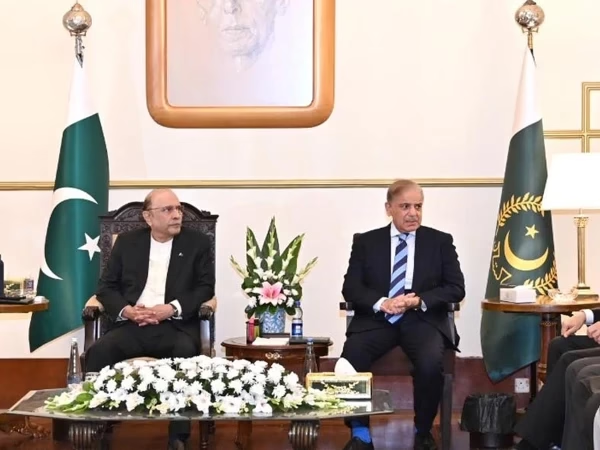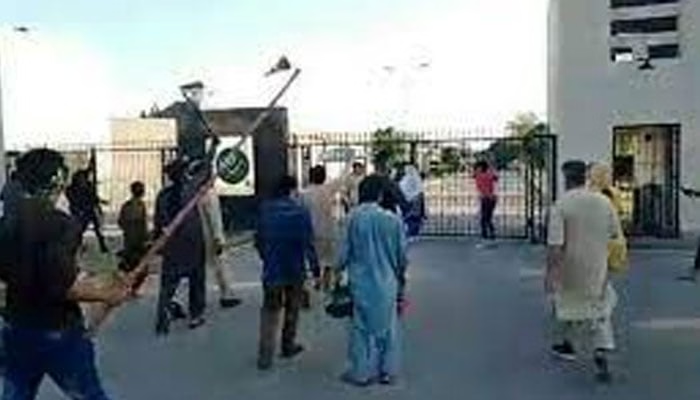The recent high-level meeting between President Asif Ali Zardari and Prime Minister Shehbaz Sharif reaffirmed the government’s unwavering commitment to operations against terrorists amid rising security concerns nationwide. This strategic discussion highlighted the increasing need for coordinated action to ensure national stability and protect citizens from foreign-backed militant threats.
In a detailed meeting at the Presidential Palace, the President and Prime Minister reviewed the country’s overall political and security landscape. The discussion was prompted by recent terror incidents, including the tragic courthouse blast and the attack on Wana Cadet College. Both leaders strongly condemned these incidents and expressed deep concern over the involvement of extremist networks and external facilitators operating against Pakistan’s interests.
The leadership emphasized that operations against terrorists would not only continue but intensify until every militant group and its support system is dismantled. This firm stance reflects growing national demand for strong and consistent counterterrorism measures, especially in regions experiencing recurring security challenges.
Leadership Unity on National Security
One of the most significant outcomes of the meeting was the strong unity displayed between the President, Prime Minister, and other state representatives. Such alignment strengthens the execution of national security strategies and offers reassurance to the public that their safety remains a top government priority.
The presence of key national figures—including Senate Chairman Syed Yousuf Raza Gilani, National Assembly Speaker Sardar Ayaz Sadiq, and federal ministers Syed Mohsin Naqvi, Chaudhry Salik Hussain, Azam Nazir Tarar, Khalid Hussain Magsi, and Abdul Aleem Khan—demonstrated that security is not a single-department responsibility but a collective national mission.
This broader involvement ensures that operations against terrorists are backed by legislative support, administrative coordination, and continuous intelligence sharing between agencies.
Addressing Foreign-Backed Threats
A major concern raised in the meeting was the increasing evidence of foreign-backed groups operating inside Pakistan. Both leaders reiterated that the state has credible intelligence indicating that several recent attacks are being funded, trained, or facilitated from outside the country. This adds a layer of complexity to security operations and requires strategic responses that combine military, diplomatic, and intelligence efforts.
The government has therefore resolved that operations against terrorists would be conducted with both internal precision and external vigilance. This includes dismantling sleeper cells, identifying local collaborators, and blocking communication networks used by militants.
Strengthening Counterterrorism Capacity
The leadership also discussed the need to further strengthen the capacity of counterterrorism institutions. In recent years, Pakistan’s security forces have made significant advancements, but emerging technologies, cross-border movement, and hybrid warfare tactics have introduced new challenges.
To address this, the government is focusing on:
- Improved intelligence coordination between federal and provincial agencies
- Upgraded surveillance systems to monitor high-risk regions
- Enhanced training programs for anti-terror units
- Faster response mechanisms during emergencies and terror threats
These steps are part of a broader effort to ensure that operations against terrorists are not reactive but proactive—preventing attacks before they occur.
Public Confidence and National Stability
The meeting’s outcomes are likely to bring a sense of relief to citizens across Pakistan, especially those in areas affected by instability. Public confidence plays a crucial role in the success of counterterrorism operations, as community cooperation helps authorities gather information and track suspicious activities.
Leaders also emphasized the need to keep the public informed, avoid panic, and strengthen unity against divisive elements. National resilience is built when government policies are transparent, effective, and widely supported.
A Long-Term Commitment
While the government has achieved major successes in past counterterrorism campaigns, both President Zardari and Prime Minister Shehbaz Sharif acknowledged that the threat has not been completely eradicated. The evolving nature of militant groups means that Pakistan must remain vigilant.
Their joint resolve to continue operations against terrorists “until complete elimination” sends a strong message to extremist networks that the state will not compromise on national security under any circumstances.
The high-level meeting marks a significant step in Pakistan’s ongoing fight against terrorism. With strong political unity, a clear strategy, and enhanced cooperation between civil and military institutions, the government has reaffirmed its commitment to safeguarding the nation’s future.
The continued focus on operations against terrorists ensures that Pakistan remains determined to create a peaceful, stable, and resilient environment for its people.



